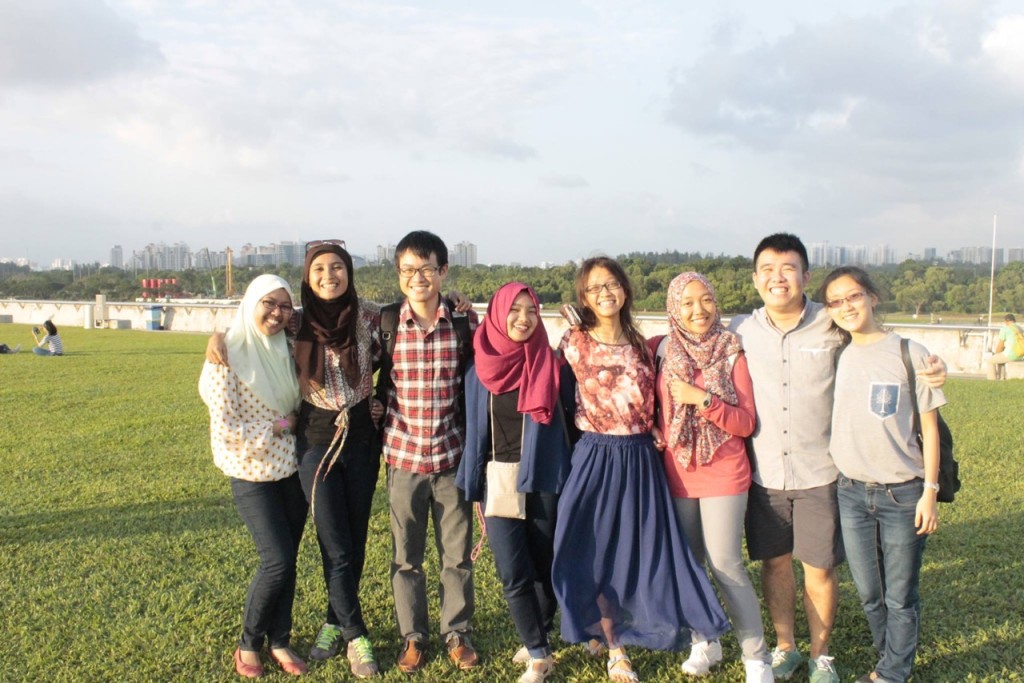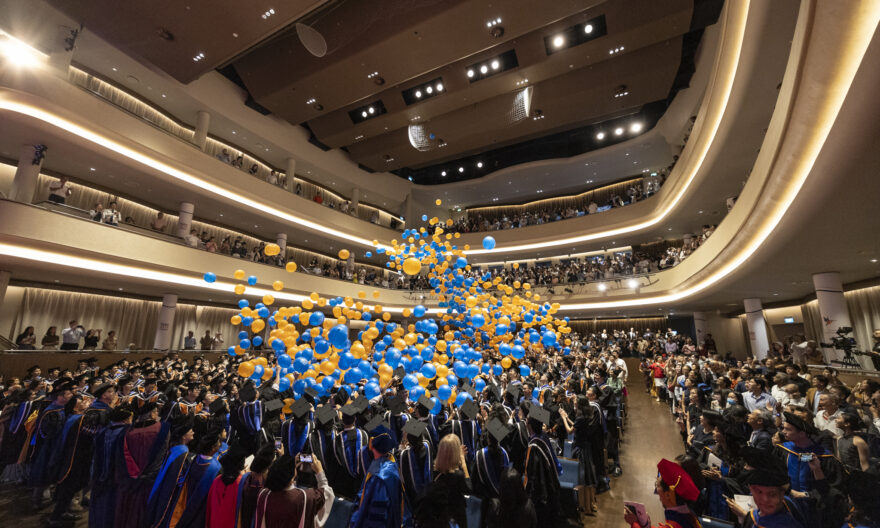Yale-NUS students conduct environmental education programme for Southeast Asian youth
 The Chilli Padi team: main organiser Jeffrey Tong (third from left) with facilitators
The Chilli Padi team: main organiser Jeffrey Tong (third from left) with facilitators
While most students were busy finishing up their midterm papers and exams in February 2016, four Yale-NUS students were hard at work organising an environmental education and leadership accelerator programme for youths.
Called the Chilli Padi Academy, the education cum mentorship programme aims to educate high school students aged 16 to 19 from Singapore, Malaysia and Indonesia about key environmental issues in the Southeast Asian region.
The Academy is the brainchild of Jeffrey Tong (Class of 2018), who is also Co-Founder and Vice-President of I’dECO, a Yale-NUS student organisation that aims to nurture future leaders who engage in environmental activism.
After experiencing a five-week summer programme called the Young Southeast Asian Leaders Initiative (YSEALI) in Honolulu, Hawaii, Jeffrey was inspired to create a programme for youth who may not have had the same opportunities to do so in their own contexts.
Jeffrey roped in two other friends whom he had met during YSEALI to help set up the Academy, and three more Yale-NUS students, Neo Xiaoyun, Lee Xin Run and Pang Wei Han (Class of 2019) also pitched in to help organise the programme.
When asked about the origins of the intriguing name, Jeffrey pointed out that while the chilli padi pod is very small, it is explosive and powerful in flavour. This quality, he explained, is akin to the inner drive of the participants.
“Even though they are young, [they] are extremely capable and extremely talented,” he said of the participants. “Further, the [chilli padi is a] common identity across the three Southeast Asian countries that we are reaching out to.”
The Academy kicked off in February 2016 as the 14 participants convened in the Yale-NUS campus for an ‘Accelerator Programme’ that focused on key ideas surrounding sustainability, food waste, biofuels and energy.
Throughout the week, participants attended leadership and self-discovery workshops, and embarked on facilitated learning journeys and field trips.
For instance, part of the itinerary was a visit to the Neste biofuel plant, the world’s leading biodiesel supplier, as well as The Food Bank Singapore, a place where people or companies can deposit their unwanted food.
Xiaoyun, who was a facilitator for the programme, was encouraged by the positive feedback from participants.
“When the participants were there [at the field trip sites], they were really inspired by the technology involved,” she said. Xiaoyun, who is also the Co-Director (Sustainability Blueprint) of Yale-NUS student organisation I’deCO, became involved in the Academy because she is passionate about environmental education for youths.
Jeffrey added that through these field trips, the participants drew connections with the innovations seen and the problems faced in each of their home settings.
One participant, Yeo Jing Ying, who hails from the School of the Arts (SOTA) in Singapore, is appreciative of the skills she gained through the programme.
“[Chilli Padi Academy] really taught me to think hard about what society really needs, and not just apply what we learn to existing issues in a hypothetical context, “ she said. “I think I am more prepared to apply what I’ve learnt in situations where I will actually have an impact on society, thanks to the many skills around design thinking I’ve learnt.”
Nabila Yasmindira Hilmi, another participant from Surabaya, Indonesia, also felt that the programme taught her “how to listen better, and how to appreciate the values of others all around me”.
With the experience of Chilli Padi Academy under their belt, the participants are now busy coming up with innovative and environmentally friendly solutions for their home communities.
Nabila, for example, is embarking on a campaign called the Surabaya Bottle Movement. She has designed a recyclable bottle that allows an individual to contain water for an entire week and release small amounts of water that are sufficient for watering plants every day.
Together with local mentors and US State Department Alumni from various organisations, participants will be guided in implementing their respective projects over the next few months, and will reconvene in Indonesia in May 2016 for an evaluation of their projects.
In the near future, Jeffrey hopes to personally reach out to the YSEALI network to promote Chilli Padi Academy and propose how education in Southeast Asia can be remodelled in a way that is more effective. The organisers are also considering holding another iteration of the programme next year.
A pre-university version for students in Singapore will also be held in May and June 2016.
For more information on the Chilli Padi Academy, check out their website!





